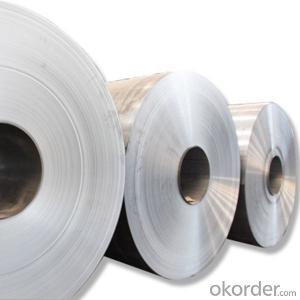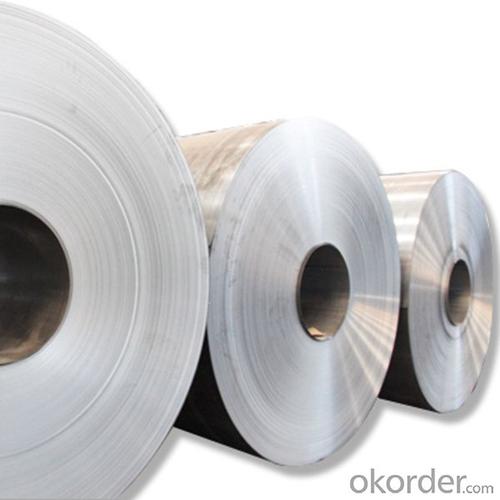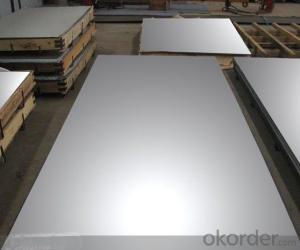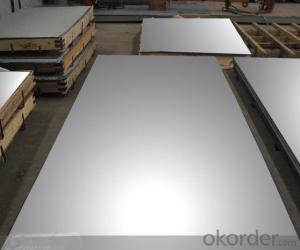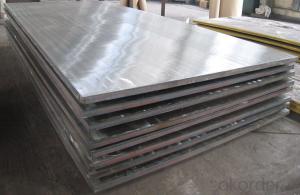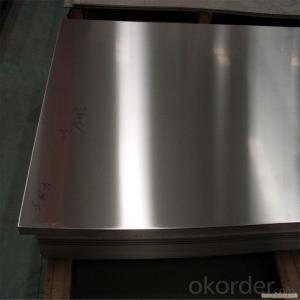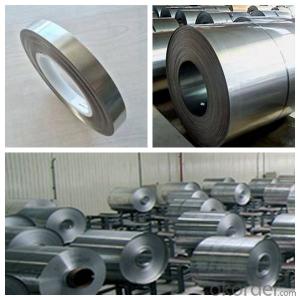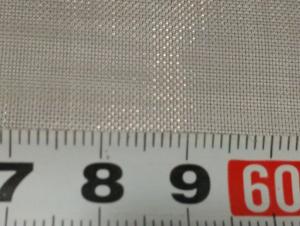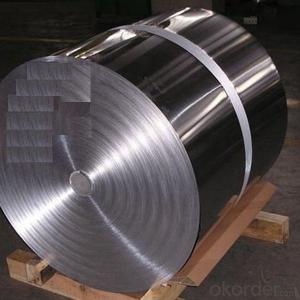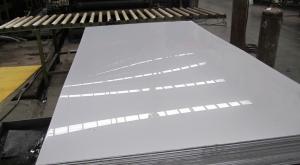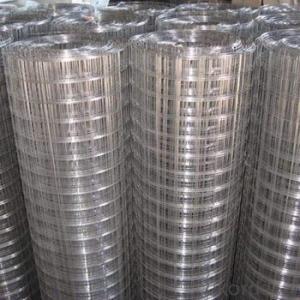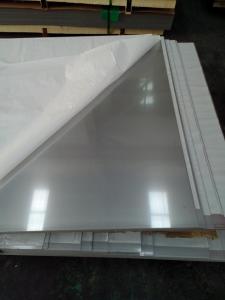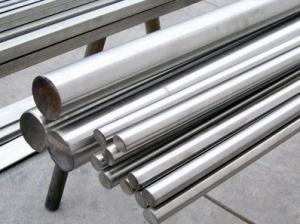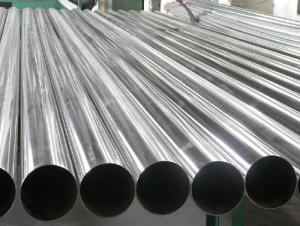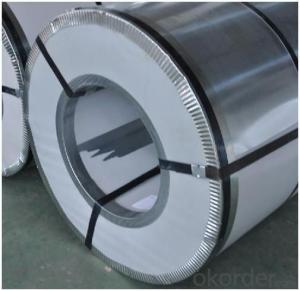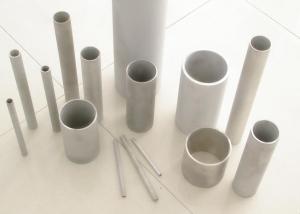Steel Stainless 304L Made in China With High Quality
- Loading Port:
- Tianjin
- Payment Terms:
- TT OR LC
- Min Order Qty:
- 50 m.t.
- Supply Capability:
- 25 m.t./month
OKorder Service Pledge
OKorder Financial Service
You Might Also Like
Specification
Products Description for Stainless Steel Coils/Sheets:
Product | stainless steel coils/plates/sheets | ||
Discharge Port | Any Port, China | ||
Size | Coils | Cold Rolled: | Thickness0.3-8mm,Width:280-2100mm |
Hot Rolled : | Thickness3-14mm,Width:650-2100mm | ||
Plates | Thickness2-80mm,Width:1500-3000mm | ||
Coil Weight | About 20 Tons | ||
Grade | 201,202,304/304L/304H,316/316L/316H,321/H,310S,409/L,430 etc. | ||
Technique | Hot Rolled/Cold Rolled | ||
Finish | 2B, BA, 2D, No1, No2, No4,NO.8,SB etc | ||
Edge | Mill Edge / Slitting Edge | ||
Package | In bundles, or as customer's requirement | ||
Place of Origin | Made in China | ||
MOQ | 20 Tons | ||
Packaging & Delivery for Stainless Steel Coils/Sheets:
Packaging Detail Standard export packing or following customer's demand
Delivery Time: Within 30-40 days after deposit or according to the order quantity
Details for the products:
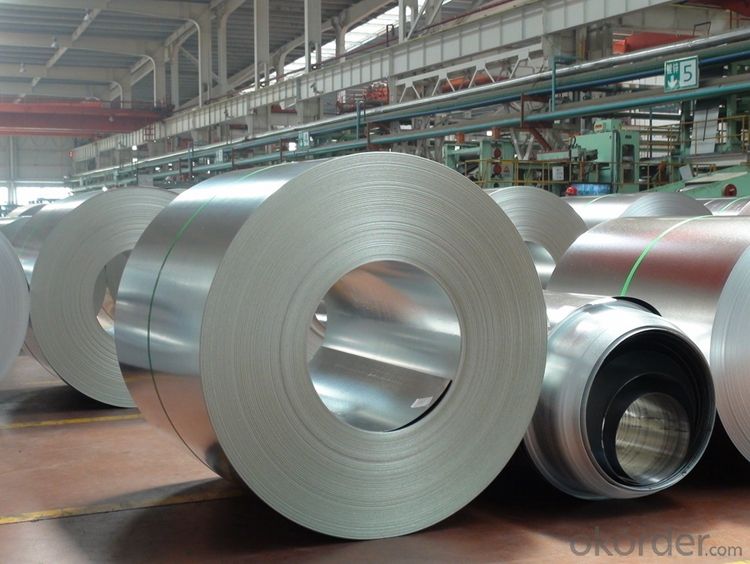
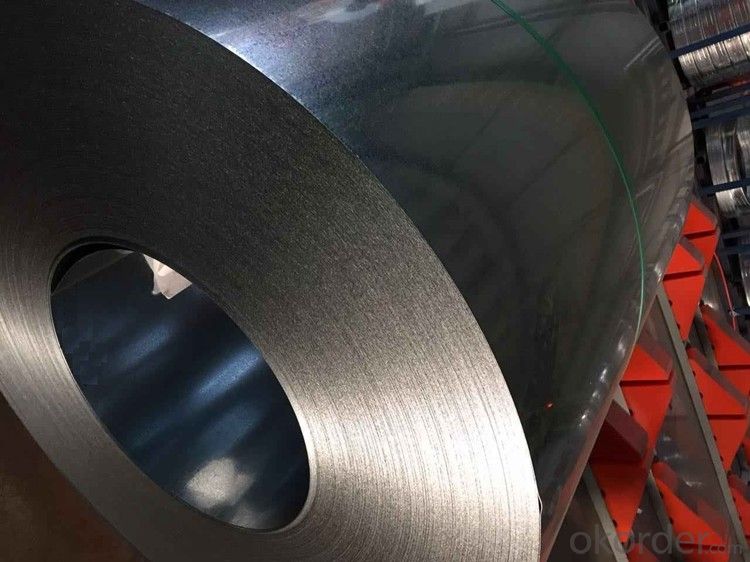
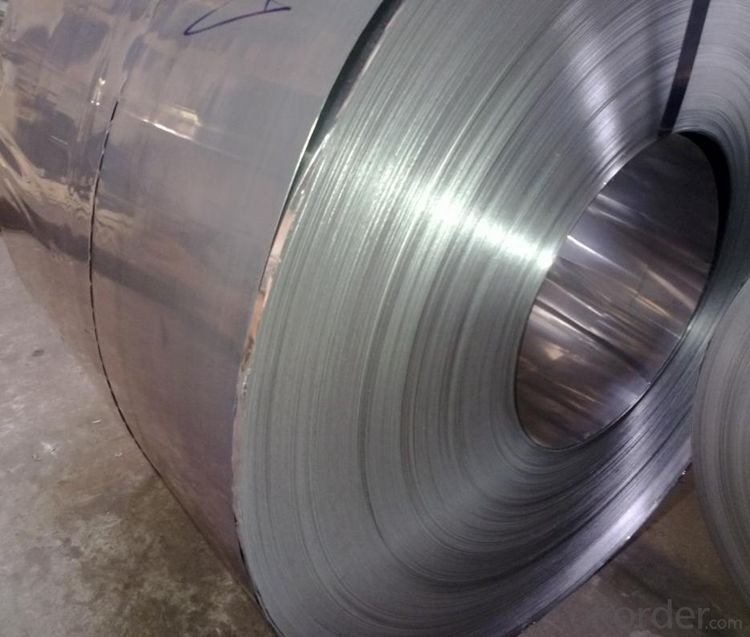
Features of Stainless Steel Coils
(1)Good ductility
(2)Good corrosion resistance
(3)Excellent abrasion resistance and fatigue strength
(4)Good weldability
(5)Oxidation resistant performance
(6)Excellent in high temperature
Our Service
1.High quanlity and reasonable price.
2.Customized on-demand.
3.Reasonable shipping and fast delivery.
4.Free sample.
FAQ for Stainless Steel Coils/Sheets:
Q:How to order?
A: Please send us your purchase order by email or fax .or you can ask us to send you a proforma invoice for your order .We need to know the following information for your order.
1) Shipping information-company name, street address, phone number, fax number, destination sea port
2) Product information – Quantity, Specification (steel type, thickness, width, surface finish)
3) Delivery time required
4) Forwarder's contact details if there's any in China
FAQ for Stainless Steel Coils/Sheets:
Q:What are the advantages of your company ?
A: We have many professionals, technical personnel, more competitive prices and best after-dales service than other stainless steel companies.
Q:Can you arrange the shipment ?
A: Sure we can help you with the shipment. We have forwarders who have cooperated with us for many years.
- Q: How do you prevent distortion when welding stainless steel sheets?
- To prevent distortion when welding stainless steel sheets, there are several key steps and precautions that should be followed: 1. Proper preparation: Ensure that the stainless steel sheets are clean and free from any contaminants such as oil, grease, or dirt. Thoroughly clean the surfaces using a suitable solvent or degreaser before welding. This helps to prevent any impurities from being trapped in the weld, which can lead to distortion. 2. Proper fit-up: Accurate fit-up of the stainless steel sheets is crucial to minimize distortion. Ensure that the edges of the sheets are aligned properly and that there are no gaps or misalignments. Proper clamping or tacking can also help to maintain the correct position of the sheets during welding. 3. Controlled heat input: Heat control is essential to prevent excessive distortion. Using the appropriate welding technique, such as TIG (Tungsten Inert Gas) or MIG (Metal Inert Gas), can help control the heat input. It is important to avoid overheating the stainless steel sheets as it can lead to warping and distortion. Maintaining a consistent and controlled heat input throughout the welding process is crucial. 4. Weld sequence: Proper planning of the weld sequence can also help to minimize distortion. Start from the center and work outward in a balanced manner to distribute the heat evenly. This prevents localized heating, which can cause distortion. Alternating between sides and allowing each weld to cool before moving to the next one can also help to reduce distortion. 5. Proper welding technique: Choosing the right welding technique and parameters is important. For instance, using a lower heat input, slower travel speed, and smaller weld bead can minimize distortion. Additionally, using a backstep technique, where the weld travels in a forward and backward motion, can help distribute the heat and reduce distortion. 6. Preheating and post-weld treatment: Preheating the stainless steel sheets can help reduce the temperature gradient and minimize distortion. The preheating temperature should be within the recommended range for the specific stainless steel grade. After welding, it is advisable to perform post-weld treatment, such as stress relieving, to minimize residual stresses that can lead to distortion. By following these steps and precautions, it is possible to significantly reduce distortion when welding stainless steel sheets. However, it is important to note that each welding process and stainless steel grade may have specific requirements, so referring to the manufacturer's guidelines and seeking professional advice is recommended for optimal results.
- Q: Can stainless steel sheets be used for cladding?
- Yes, stainless steel sheets can be used for cladding. Stainless steel is a popular choice for cladding due to its durability, corrosion resistance, and aesthetic appeal. It is commonly used in exterior cladding applications for buildings, such as facades, canopies, and curtain walls. Stainless steel sheets provide a sleek and modern appearance while offering protection against harsh environmental conditions. Additionally, stainless steel cladding is low maintenance, long-lasting, and can be easily cleaned, making it a practical choice for both residential and commercial applications.
- Q: Can stainless steel sheets be used in food processing?
- Food processing can make use of stainless steel sheets. They are commonly chosen in the food industry because of their advantageous properties. One crucial property is their resistance to corrosion, which is highly important in food processing environments where contact with water, chemicals, and food is frequent. Stainless steel sheets are also non-reactive, meaning they do not interact with food or impact its taste, thus making them a safe option for food processing equipment. Moreover, stainless steel is easy to clean and maintain, making it ideal for maintaining the high levels of hygiene required in food processing facilities. Its durability and strength ensure that it can withstand the demanding nature of food processing operations. Overall, stainless steel sheets are the preferred choice in the food industry for their suitability in food processing applications.
- Q: What are the different sizes available for stainless steel sheets?
- Stainless steel sheets are available in various sizes, ranging from small sheets measuring a few inches in width and length, to larger sheets that can be several feet wide and long. The specific sizes available depend on the manufacturer and the intended use of the stainless steel sheets.
- Q: What are the different types of edge finishes available for stainless steel sheets?
- There are several types of edge finishes available for stainless steel sheets, including the straight edge, beveled edge, rounded edge, and hemmed edge.
- Q: Can stainless steel sheets be used for elevator shafts?
- Yes, stainless steel sheets can be used for elevator shafts. Stainless steel is a popular choice for elevator shafts due to its durability, corrosion resistance, and aesthetic appeal. The use of stainless steel sheets for elevator shafts ensures a long-lasting and low-maintenance solution, as they are resistant to rust and corrosion caused by factors such as humidity, moisture, and chemicals. Additionally, stainless steel is strong and can withstand the weight and stress that elevator shafts may experience. The sleek and modern appearance of stainless steel also adds value to the overall design of the elevator shaft. Therefore, stainless steel sheets are a suitable and reliable material for constructing elevator shafts.
- Q: Can stainless steel sheets be used for facade cladding?
- Yes, stainless steel sheets can be used for facade cladding. Stainless steel is a highly durable and corrosion-resistant material, making it an excellent choice for exterior applications such as facade cladding. It offers an attractive and modern aesthetic, with its sleek and reflective surface. Stainless steel sheets are available in various finishes, including brushed, mirror, and patterned, allowing for a wide range of design possibilities. Additionally, stainless steel is easy to maintain, requiring minimal cleaning and upkeep. Overall, stainless steel sheets are a popular and practical option for facade cladding due to their durability, aesthetic appeal, and low maintenance requirements.
- Q: What is the fire resistance rating of stainless steel sheets?
- The fire resistance rating of stainless steel sheets varies depending on their thickness and grade, but generally, stainless steel exhibits good fire resistance properties due to its high melting point and low thermal conductivity.
- Q: What is the process of stainless steel mirror panel? What's the difference between them and stainless steel sand blasting plates?
- The 8K board, also called mirror panel, is polished on the surface of stainless steel by grinding fluid through polishing equipment, so that the surface of the plate is as clear as the mirror. Uses: mainly used in architectural decoration, elevator decoration, industrial decoration, facilities, decoration and other stainless steel products.
- Q: What are the benefits of using perforated stainless steel sheets?
- Using perforated stainless steel sheets in various applications offers several advantages. Firstly, these sheets provide excellent strength and durability due to the high tensile strength and corrosion resistance of stainless steel. This makes them a reliable option for applications that require materials with long-lasting properties. Additionally, the structural integrity of the sheets remains uncompromised even with the presence of perforations, ensuring their ability to withstand heavy loads and harsh environments. Secondly, these sheets offer exceptional ventilation and airflow. The perforations allow air and gases to pass through, making them suitable for applications that necessitate proper ventilation, such as HVAC systems, industrial machinery, and automotive components. This ventilation capability prevents the accumulation of heat and moisture, which is crucial for maintaining the efficiency and safety of various equipment. Furthermore, the design and aesthetic versatility of perforated stainless steel sheets are noteworthy. The ability to customize the size, shape, and pattern of the perforations enables the creation of unique and visually appealing designs. Consequently, they are suitable for architectural applications, interior design elements, and decorative purposes. The wide range of available perforation patterns also allows for the control of light transmission, resulting in interesting lighting effects or privacy screens. Moreover, these sheets possess excellent filtration capabilities. The perforations can be designed to filter out specific particles or substances, making them ideal for applications in the food and beverage industry, pharmaceuticals, and water treatment systems. This ensures the cleanliness and purity of the materials or fluids passing through the sheets, thereby enhancing overall product quality and safety. Lastly, perforated stainless steel sheets are easy to clean and maintain. Stainless steel's non-porous nature makes it resistant to stains, dirt, and bacteria. This, coupled with the presence of perforations, facilitates easy cleaning and disinfection, making them suitable for applications that require high levels of hygiene, such as commercial kitchens, medical facilities, and laboratories. In conclusion, the utilization of perforated stainless steel sheets offers numerous benefits, including strength and durability, ventilation capabilities, design versatility, filtration capabilities, and ease of cleaning and maintenance. These qualities make them a preferred choice in a wide range of industries and applications.
Send your message to us
Steel Stainless 304L Made in China With High Quality
- Loading Port:
- Tianjin
- Payment Terms:
- TT OR LC
- Min Order Qty:
- 50 m.t.
- Supply Capability:
- 25 m.t./month
OKorder Service Pledge
OKorder Financial Service
Similar products
Hot products
Hot Searches
Related keywords
